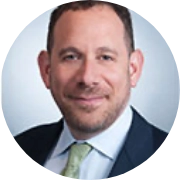Drugmaker allegedly conspired with competitors to manipulate drug prices
A whistleblower has played a pivotal role in exposing alleged price-fixing by generic drugmaker Glenmark Pharmaceuticals Inc. USA, resulting in a $25 million False Claims Act settlement.
Glenmark—the American branch of Glenmark Pharmaceuticals (NSE: Glenmark) based in Mumbai, India—was accused of conspiring with competing generic pharmaceutical manufacturers to fix the price of the cholesterol drug pravastatin.
According to the U.S. Department of Justice, the conspirators manipulated the price and supply of pravastatin and allocated customers between them in violation of the Anti-Kickback Statute (AKS). This resulted in inflated drug prices which harmed vulnerable citizens who rely on affordable medication.
The scheme was exposed by a whistleblower who filed a lawsuit under the qui tam provisions of the False Claims Act. They are statutorily entitled to a whistleblower reward of 15%-30% of the recovery.
U.S. Probe Into Drug Price-Fixing
According to the Justice Department, Glenmark and its coconspirators agreed to suppress competition and raise the price of pravastatin.
They exchanged non-public drug pricing information, refrained from submitting offers to sell pravastatin to customers or submitted offers to sell which were non-competitive, sold pravastatin at collusive and noncompetitive prices and made and received payments for collusive and noncompetitive sales, the federal indictment alleged.
The settlement is part of a broader Justice Department probe of price-fixing by generic drug manufacturers which has resulted in hundreds of millions of dollars in settlements. Glenmark previously executed a criminal deferred prosecution agreement with the Justice Department admitting its role and paying a $30 million criminal penalty.
Anti-Kickback Statute Violations and the False Claims Act
The Anti-Kickback Statute (42 U.S.C. § 1320a-7b(b)) is a federal statute which prohibits parties from paying or receiving remuneration for inducing patient referrals or medical business paid for by federal healthcare programs like Medicare or Medicaid. Types of payments prohibited by the AKS include cash, gifts, vacations, meals, rebates, free products or “sham” consulting fees. Violations can result in both civil liability and criminal penalties including prison time.
Claims for payment or reimbursement made to federal healthcare programs which resulted from AKS violations are legally false under a separate federal statute known as the False Claims Act.
The False Claims Act imposes substantial liability on parties who knowingly submit or cause the submission of false claims for payment to the U.S. government or its agencies, including federal healthcare programs like Medicaid, Medicare, and Tricare.
Its qui tam provisions entitle parties who have evidence of violations—also known as “qui tam relators” or whistleblowers—to file lawsuits on the government’s behalf and receive 15%-30% of any recovery as a reward.
The settlement with Glenmark exemplifies the critical role of False Claims Act whistleblowers in protecting government healthcare programs from fraudulent practices and ensuring accountability and integrity by the pharmaceutical industry.
What to do if You Want to Blow the Whistle
Healthcare fraud drives up healthcare costs and harms patients. The Justice Department prioritizes combating healthcare fraud by enforcing laws like the False Claims Act and Anti-Kickback Statute.
If you’re aware of parties engaged in healthcare fraud, it is essential to speak with an experienced whistleblower attorney about your rights under the False Claims Act.
Call healthcare whistleblower attorney Mark A. Strauss for a free and confidential consultation. With over 30 years of experience in complex civil litigation, Mark A. Strauss has recovered hundreds of millions of dollars for whistleblowers and fraud victims.
Having a skilled, no-nonsense whistleblower attorney like Mark A. Strauss can greatly enhance your ability to maximize your recovery and protect your rights. All communications with Mark A. Strauss are confidential and protected by attorney-client privilege.





